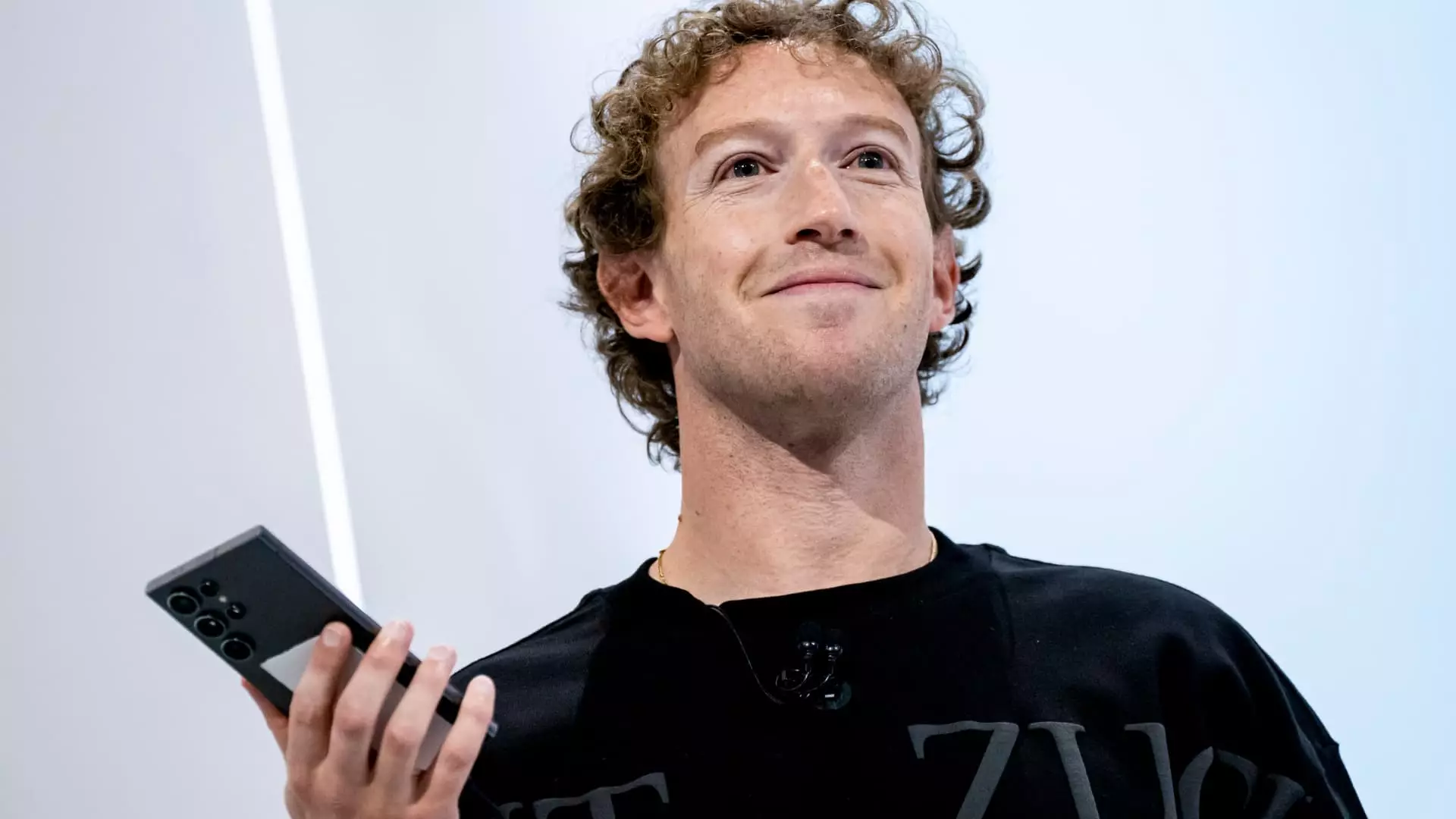In a recent episode of the popular podcast “The Joe Rogan Experience,” Meta CEO Mark Zuckerberg took a firm stance against tech giant Apple, shedding light on what he perceives as a stagnation in innovation and unnecessary regulations imposed by the company. Zuckerberg’s comments not only reflect competition’s competitive undercurrents but also raise broader questions about the dynamics of innovation within the tech industry.
Zuckerberg acknowledges the monumental impact of the iPhone on global connectivity, recognizing how it has transformed communication and information access. “It’s been great, because now pretty much everyone in the world has a phone,” he pointed out. However, he expressed dissatisfaction with what he sees as Apple’s failure to build upon that legacy. The once-revolutionary device, which revolutionized mobile technology under Steve Jobs, is now, in Zuckerberg’s view, merely resting on its laurels with minimal advancements over the past two decades.
This sentiment reveals a critical perspective on how companies can sometimes retreat into complacency after achieving a significant milestone. The Steve Jobs era was characterized by groundbreaking innovation, which has seemingly become diluted. Zuckerberg’s commentary implies that this lack of forward momentum is detrimental not only to Apple but also to the larger landscape of technological innovation where consumers await transformative upgrades.
The Perception of Pricing Strategies
Zuckerberg’s critique extends to Apple’s monetization strategies. He claims that after the initial success of iPhone sales, Apple has shifted towards “squeezing” its customer base for revenue by imposing higher costs through accessories and a substantial 30% developer tax on app purchases. Here, he raises critical concerns about the ethical implications of such strategies, as consumers may feel locked into an ecosystem that prioritizes profit over genuine value.
This financial model contrasts with Zuckerberg’s vision for Meta and probably reflects deeper issues within the tech industry, where companies constantly wrestle with finding balance between sustainable revenue generation and consumer satisfaction. An over-reliance on ancillary revenues can lead to a perception that a company is more focused on profit margins than innovation and customer-centric solutions.
One of the most provocative assertions from Zuckerberg’s interview was his take on Apple’s self-defense for their ecosystem. Apple often touts its commitment to privacy and security as a cornerstone of its business model. However, Zuckerberg counters that these claims may serve as a facade for obstructing competition. Within this contentious dialogue lies an opportunity to examine how companies interpret or manipulate market rules, often at the expense of competitors and even consumers.
Zuckerberg’s call for Apple to enhance its security protocols resonates with the ongoing debate regarding user data protection. Are these “random rules” genuinely protecting users, or do they merely create barriers for innovation? By pointing out that better security could open the door for more seamless third-party integrations, Zuckerberg highlights a significant opportunity for Apple to reimagine its business framework.
Virtual Reality: Competition Between Giants
Moving from the realm of smartphones to virtual reality, Zuckerberg did not shy away from critiquing Apple’s Vision Pro headset, which has not met sales expectations. While acknowledging Apple’s ambition, he painted a realistic picture of what launching innovative products entails, noting that initial attempts often come with flaws. This point drives home the principle that innovation is a process; successful products may require iterative improvements before finding their market fit.
The stark contrast between Apple’s Vision Pro and Meta’s Quest line underscores the increasingly competitive nature of the tech landscape. This rivalry showcases different approaches to VR technology—where Apple may be perceived as offering niche, premium products, Meta’s focus seems to position it for broader access and usability.
Zuckerberg’s sharp critique of Apple serves as a reminder of the complex dynamics at play in the tech industry. As competition persists, companies must remain vigilant, not just with their innovations but in maintaining ethical practices that prioritize consumer needs and encourage diversity in the marketplace. Ultimately, the conversation between Zuckerberg and Rogan leaves listeners questioning how the future of innovation will unfold in an environment where giants are occasionally hindered by their own success. The responsibility now lies with industry leaders to rise to the occasion, fostering an ecosystem that values creativity, collaboration, and meaningful progress.


Leave a Reply